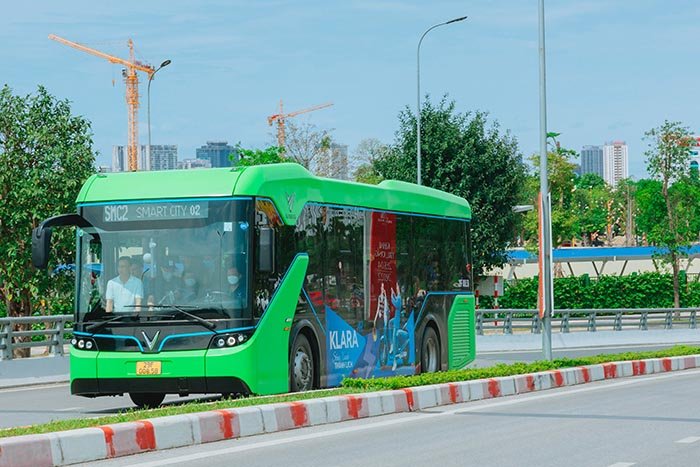Tempo is reporting that the Ministry of National Development Planning (Bappenas) and the South Korean government have agreed to collaborate to establish an ecosystem of electric buses to support public transport in Bali.
The ministry’s deputy for maritime affairs and natural resources, Vivi Yulaswati, said on Wednesday (13/12/23) that the collaboration aims to support the achievement of the net zero emissions target by 2060. The transportation sector is the second-highest contributor of emissions, she added.
According to her, a pilot project will be conducted in four regions in Bali, namely Denpasar, Badung, Gianyar, and Tabanan (Sarbagita), over the next three years, Tempo is reporting.
“Of course, there will be trial and error. We hope that the program will be successful in three years, and we can develop it in twenty other big cities,” she said.
Tempo report that during the trial period, her party will prepare the required infrastructure, including through bus procurement, establishment of charging stations, routes, and sidewalks, and deployment of operators in the field.
The electric vehicle ecosystem trial and the development of a green transportation investment road map in Bali will cost USD 8.8-million, and will be supported by partners of the two countries, namely the Global Green Growth Institute (GGGI,) say Tempo.
Till December 2027, GGGI will assist in feasibility studies, implementation, finances, and the provision of electric buses and the supporting ecosystem, Yulaswati said.
GGGI’s country representative – Indonesia, Jaeseung Lee, said that the project will be the institute’s first cooperation with the Indonesian government in the electric vehicle sector in their 10-years of partnership.
Lee added that the goal of the cooperation is to attract people’s interest in using public transportation that offers comfortable and affordable services.
Meanwhile, director of the Climate Change and International Cooperation Bureau of the South Korean Environment Ministry, Suy Hyun Lee, expressed support for the project and offered further cooperation, especially in the environmental field, say Tempo.
She said that climate change can impact the environmental, economic, tourism, and social sectors in Indonesia.
“We have to overcome climate change to prevent prolonged drought. We can collaborate in other fields such as water resources and waste, as well as greenhouse gas capture; so, I support collaboration to deal with climate change,” she added.
Tempo report that IGW Samsi Gunarta, head of the Bali Transportation Service, also voiced his support for the program to achieve the net zero emissions target by 2045.
According to Gunarta, Bali already has diesel buses in its public transportation fleet, saying that the electric bus program “will start in the Sarbagita area because they are already prepared with a sustainable urban mobility plan. We already have a regional action plan regarding the number of electric buses needed and some other planning underway.”
After the Sarbagita area, the regional government is targeting to carry out its electric bus development project in Klungkung since the Bali Cultural Center (PKB) will be built in the area to encourage new economic growth, say Tempo.
Source: Tempo

